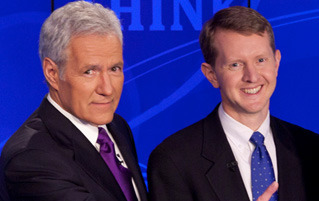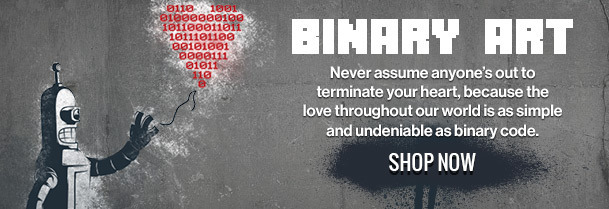6 Inside Facts About Jeopardy From A 74-Episode Winner

For over 50 years, Jeopardy! has brought smug satisfaction to untold millions of viewers who got upwards of three questions "close enough" to right. You probably remember when the media lost their collective shit over Ken Jennings, who raked in over $3 million after winning 74 games in a row. After carefully monitoring his home for weeks, we realized that the guards Ken pays to keep stalkers like us away from him take every Friday afternoon off for a round of team-building minigolf. We giddily exploited that weakness, and here's what he told us before the police arrived:
The Game Is Much More Intense Than You See On TV

"The game is over in a flash," Ken says. You see, unlike other game shows where they might take commercial breaks to hose the anxiety-vomit out of the showcase, Jeopardy! is more or less played in real-time as you see it on TV. They might film five shows in an afternoon, blasting through games like "a well-oiled machine." It can go by pretty quickly when your every move means the difference between a new car or hitchin' home with a trucker named Cooter.

"Hop in back with the Wheel Of Fortune losers."
That kind of pressure can get to you: Ken would see contestants build themselves up, saying stuff like "I told my wife I was going to win five in a row!" but those were always the first ones to choke. They were just putting far too much pressure on themselves. Ken says that during the game, he's "playing on autopilot -- my mouth and thumb are working, but my brain isn't."

"What is the Gram-Schmidt orthonormalization process?"
*... to fall down at your door, duh-nuh-nuh-nuh, DUH-NUH-NUH-NUH, duh-nuh-nuh-nuh ...*
That technique may not work for everybody. Ken turns off his brain and wins millions in an intelligence-based game show; you turn off your brain and wind up slipping a Popsicle into your pocket while putting your cellphone in the freezer.
It's Not About The Answers; It's About The Buzzer

One of the secrets of successful repeat contestants is buzzer practice. Ken watched the game with a pretend buzzer, identifying contestants who were playing well on a given episode and trying to match their timing. "It's about reflexes, not speed, because you have to wait for Alex to finish the question," he says. "You have to buzz at the exact second the buzzer goes live, because if you buzz too early, you get locked out for a few seconds."

And just to rub it in, the Duck Hunt dog pops up and laughs at you.
The reason these Rocky-style psych-ups are necessary is because Jeopardy! doesn't just pick random yokels off the street. If they did, every episode would end with all three contestants in the negative millions. Everyone has to pass a test to be on the show in the first place, so they're all working with approximately the same set of knowledge. According to Ken, it's actually likely that "all the players know the answer all the time." What matters more than anything is beating them to the buzzer. Which is probably why everybody that doesn't ring in first looks like they just realized they left their coffee on top of the car when they pulled away.
You Need To Know The Answers To Questions You Don't Know The Answers To

That heading reads like a drunk guy trying to remember a Zen koan, we know. But bear with us:
"There's also the psychology of it," Ken says. "Getting into the mind of the person who wrote the question." The real trick to the game is finding the answers to questions you don't know. To break it down, Ken offered this example, which was one of his Final Jeopardy! questions:

"Uh, what is give me a new clue, Alex?"
"Jeopardy clues are short, but there's always a lot going on," he said. "Every word counts. 'Marine biology' is obviously what jumps out first. The answer must be an ocean creature of some kind. There has to be a reason why the category is the weirdly broad 'ENTERTAINMENT' -- if the answer was something like a book or a movie, the category would just be BOOKS or MOVIES. 'ENTERTAINMENT' seems like an intentional obfuscation, because a more specific category would give away the game. The genre of the answer is probably very specialized. Also, 'educator' must be important, because it would have been so easy to say 'marine biologist' there. What kinds of entertainment are usually developed by educators? Children's entertainment. Children's TV, usually. A comic book or cartoon character would definitely be a specialized genre. Who's a 21st-century undersea children's character from cartoons or comics? That's really what the question is asking. Once you reframe it, it's much easier than it seems. (Google 'Stephen Hillenburg' if you don't have the answer.)"

Unfortunately, banking on "What is Canada?" won't help you here.
The Judges Decide Everything, And They're Just Normal People

When a player gives a questionable answer to an answer in the form of a question, we see Alex Trebek defer to the mysterious "judges." We picture a cabal of shadowy, cloaked figures, each an absolute authority on one subject, be it 'classic films' or 'South American history' or 'potpourri' (the other judges pick on poor potpourri guy).

The only person who will eat lunch with him is the Two-Letter Words judge.
But alas, the ominous judges are just a couple of writers and producers who sit at a table off set. Though they do make the contestants turn around while they debate the matter -- "any little thing might give away," Ken explained -- they're not remorseless trivia savants. However, just because they're not experts, that doesn't mean they're winging it: They actually have "a huge reference library somewhere in the building." and it's not uncommon for someone to walk off the set to go look something up.

If you even think about suggesting Wikipedia, they banish you to Are You Smarter Than a 5th Grader? tapings.
And that must be where the real cloaked figures live ...
We want to believe in this world, dammit.
There Are Crazy Laws Just For Game Shows

There's a whole section of the FCC's Communications Act that specifically governs game show contests. That sounds pretty silly at first, but you have to keep in mind how crazy the nation went about those quiz show scandals back in the '50s. Now there are rules so strict it's like a trivia-themed, sci-fi dystopia. Contestants are forbidden from even making eye contact with the judges, and not just because they see it as a challenge to their dominance -- you can get prison time for that sort of thing.

"Ha, Double Jeopardy! You can't convict me!"
"That's not how that works."
One time, it was discovered mid-taping that Ken's tie wasn't "reading well" on camera, so he had to change it. Instead of going back to the dressing room, he was just directed upstage where Trebek had a mirror (of course Trebek has a special, hidden mirror). The producers threw a fit. Ken couldn't use the mirror because he wasn't allowed to be anywhere near that area of the set, not because Trebek is some kind of set-hogging diva (special mirror notwithstanding; he is, according to Ken, a very nice man). It's because that's where the podium -- and the answers -- are located. It didn't matter that a contestant couldn't possibly have seen the answers from that position. It would have broken one of the sacred rules. Ken's just lucky he wasn't sent to Thunderdome for the infraction.
Everyone's Handwriting Is So Bad For A Reason

Why does everyone on the show write like a hummingbird having a seizure? Is there some inverse correlation between genius and the ability to write your own name better than a kindergartener? Does all that buzzer practice actually erode your fine motor skills?
It's actually totally explainable. See, this is the contestants' podium:

Not pictured: The alligator pit into which contestants with boring anecdotes are fed.
Look at that pen. It's the size of the screen itself. Imagine trying to write with one of those giant plastic safety crayons. Now imagine that the crayon is as slick as a greased doorknob. "It's like writing with an icicle on glass," Ken says. You might be a perfectly functional adult with a proper grasp of penmanship, but if you wind up on Jeopardy!, you too will write your name like you just suffered a traumatic brain injury and are slowly relearning language.
Ken Jennings could write a book about this stuff, but instead he wrote several, and his Twitter routinely appears on lists of the funniest Twitter accounts. Manna also has a Twitter, but it tends to show up on the kinds of lists you don't want to be on.
For more insider perspectives, check out 7 Reasons Child Stars Go Crazy (An Insider's Perspective) and 5 Things 'Breaking Bad' Left Out About Having a Drug Lord Dad.
Are you on reddit? Check it: We are too! Click on over to our best of Cracked subreddit.
Have a story to share with Cracked? Message us here.
Cracked is up for a Webby Award! Click here and give us a vote for "Best Humor Website."
